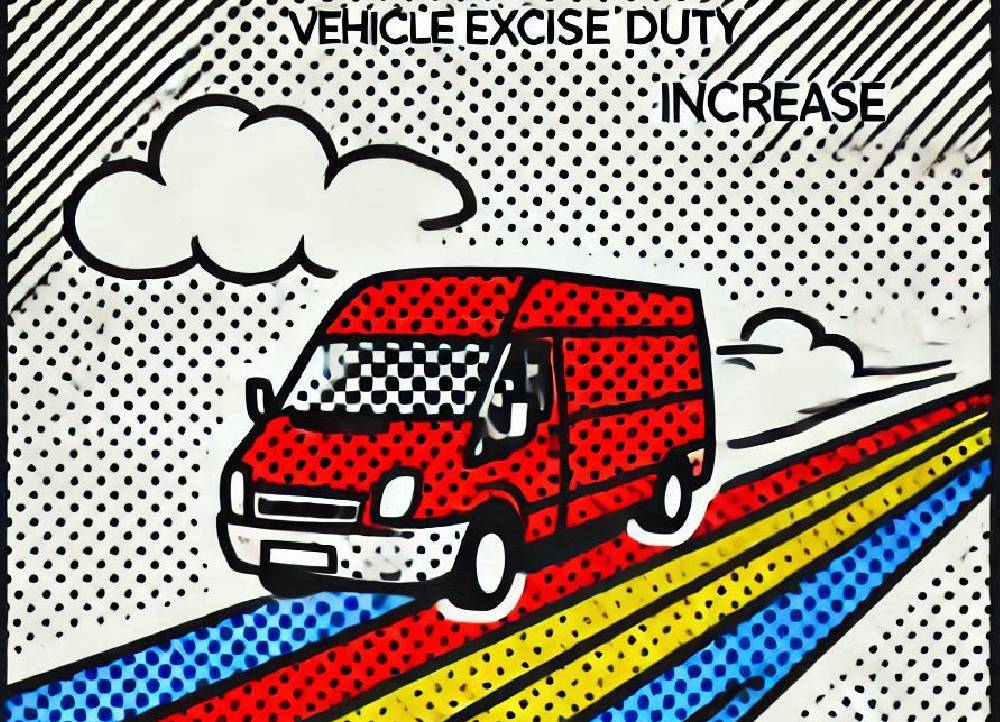Introduction
Switching to electric…
Britain’s van drivers are at a crossroads.
And the road ahead?
It’s electric.
The UK government has just confirmed that its plug-in van and truck grant will continue through to at least 2027, slashing the cost of switching to electric vans.
But here’s the twist…
This isn’t just a win for sustainability.
It’s a massive cost-saving opportunity for drivers and businesses alike — and van insurance is right at the heart of it.
If you’re running a van in 2025, this is your moment to cut costs, plan ahead, and future-proof your cover.
The Grant That’s Powering The Electric Van Revolution
So what exactly is changing?
The UK’s plug-in van and truck grant has officially been extended until at least 2027.
That means:
- Up to £2,500 off small vans
- As much as £5,000 off large vans
- Up to £16,000 off small trucks
- And even £25,000 off large trucks
Extending these grants is another decisive step to power Britain’s transition to cleaner transport,” said Lilian Greenwood, the new Future of Roads Minister.
This isn’t just good news for corporations.
Sole traders, couriers, and independent tradespeople can also claim the grant — no fleet required.
With fuel prices still sky-high, every pound saved counts.
Want to know which van models qualify for the lowest insurance groups?
Why Businesses Are Making The Switch To Electric Now
Let’s be blunt.
Running a petrol or diesel van is getting expensive — and risky.
Electric vans, on the other hand?
- Save an average of £2,800 a year on fuel
- Dodge ULEZ and Clean Air Zone charges
- Get maintenance savings thanks to fewer moving parts
Add the government grant on top, and you’re staring at thousands in savings before even thinking about insurance.
No wonder the UK logistics sector — which employs 1.2 million people — is charging ahead with EV plans.
This news is a big boost for tradespeople across the UK,” said Checkatrade CEO Jambu Palaniappan.
Want more proof?
Big players like Amazon are already pushing for zero-emission fleets.
And when the big guys move — the rest follow.
Curious how smart tech can slash your premiums too?
Explore how telematics can help
Van Insurance Implications: Will Electric Vans Cost Less To Insure?
Here’s where it gets interesting.
Electric vans don’t always mean cheaper insurance — but the picture is changing.
Right now, EVs can have higher initial premiums due to:
- Expensive parts
- Fewer repair specialists
- Theft risk (yes, EV batteries are valuable)
However, many specialist insurers are adjusting their models.
Why?
Because EVs have:
- Lower mechanical failure rates
- Built-in tracking and immobilisers
- Telematics-friendly systems
- Lower accident rates in some fleet data
This is key.
Because as insurers get more data, premiums for electric vans are starting to drop — especially if you compare deals actively.
Still paying too much?
The Bigger Picture: Why This Matters For The UK Economy
Let’s zoom out.
This isn’t just a van upgrade — it’s a national transformation.
- The UK logistics sector contributes over £79 billion a year
- Every diesel van replaced reduces harmful emissions
- EV growth fuels green jobs, charging infrastructure, and supply chain upgrades
It’s the type of shift that creates opportunities, not just cuts costs.
Every small van operator that switches to electric is part of a bigger story.
A cleaner, cheaper, and more resilient Britain.
And if your insurance policy still hasn’t caught up?
Here’s a complete guide to protecting your policy
The Infrastructure Is Finally Here
One word:
Chargepoints.
You may have held off on switching because of range anxiety.
But as of now?
- 83,800+ public chargers are active in the UK
- Over 100,000 more are coming
- £381M is being invested into local EV infrastructure
This is no longer a chicken-and-egg problem.
Charging is here.
It’s fast.
And it’s only getting better.
Still hesitating?
You’re not alone – here’s what’s holding drivers back
What This Means For Individual Van Drivers
While large fleets are leading the charge, individual drivers stand to benefit just as much.
In fact, self-employed van owners can access the exact same grants as larger companies.
Because of this, you don’t need a dozen vehicles to cut costs.
Even switching one van could mean thousands in savings each year.
Moreover, many of the new EV vans are exempt from emissions charges,
which means more money stays in your pocket.
On top of that, electric vans often qualify for insurance discounts,
especially when paired with telematics or strong driving records.
As a result, solo drivers now have an edge they never had before.
New to the game?
Here’s what every first-time van driver needs to know
How To Lock In The Cheapest Van Insurance Right Now
So, how can you take full advantage?
First of all, start with the right insurer.
Although many providers now offer EV policies, not all understand the nuances of electric vans.
Because of that, comparing quotes across specialist brokers is essential.
Furthermore, installing a telematics device can help reduce premiums even further.
Not only does it track your driving behaviour, but it also provides data insurers value.
In addition, make sure to declare all van modifications,
even if they seem minor — like new wheels or upgraded headlights.
Why?
Because failing to disclose changes could lead to claim refusals.
Besides that, bundling vans into a single policy often lowers overall cost,
especially for sole traders or small business owners.
Ultimately, the more proactive you are, the more you’ll save.
And before you forget…
This one overlooked detail can void your insurance
Fleet Owners: Why Planning Ahead Pays Off
If you’re managing a fleet, timing is everything.
Now that the EV grant has been extended to 2027, fleet managers have the rare opportunity to plan with confidence.
Not only does this allow for bulk savings, but it also provides better leverage when negotiating insurance packages.
Additionally, insurers often reward data-driven businesses.
So, if you’re using route tracking, telematics, or performance analytics,
you’re already one step ahead.
What’s more, by installing your own charging stations, you could qualify for extra infrastructure grants.
Put simply, the earlier you act, the more you stand to gain — both in cost savings and operational efficiency.
Thinking long-term?
Make sure you understand what’s the current van law is
Conclusion
The future of van driving in the UK is electric — and it’s accelerating fast.
Thanks to generous EV grants, improved infrastructure, and more responsive insurers,
drivers who act now can lock in serious savings.
Furthermore, switching to electric means fewer mechanical problems, cheaper running costs,
and lower emissions — all while positioning your business as future-ready.
However, your savings don’t stop at the van itself.
By choosing the right insurer, declaring all modifications, and comparing tailored quotes,
you can unlock the cheapest van insurance UK has to offer — even with a brand-new electric van.
So don’t wait until grants shrink or premiums rise.
Make the switch now, optimise your cover, and get ahead of the curve — while you still can.
Looking for more insights?
These hand-picked articles are worth your time:







